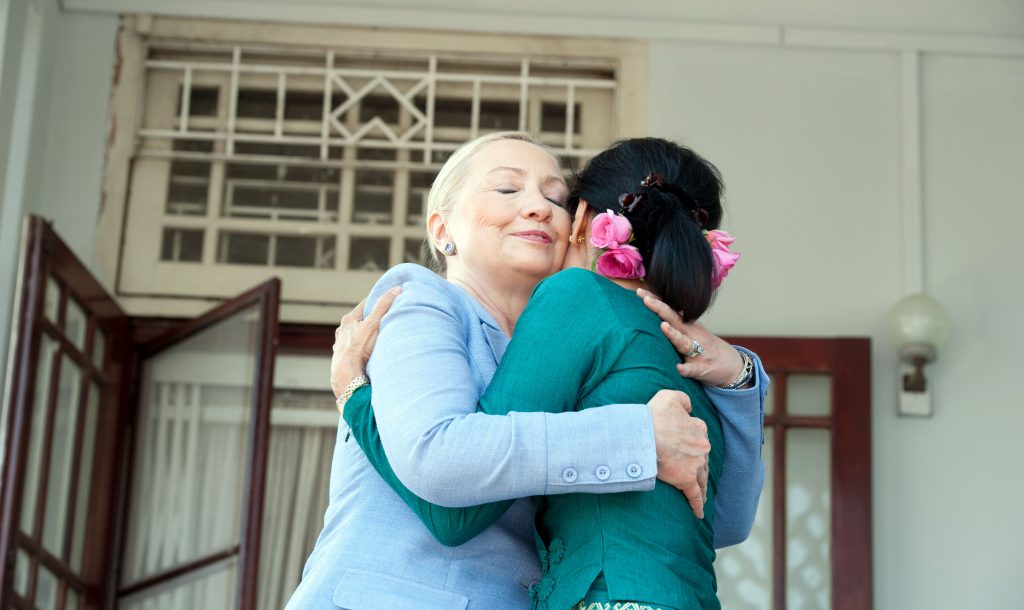It’s time for Myanmar’s government to cash in on Aung San Suu Kyi’s global reach, writes Tridivesh Singh Maini.
Since assuming office the National League for Democracy government has done a stellar job in cementing ties with important countries like China and India, as well as Southeast Asia neighbours, including Thailand. This is largely due to Aung San Suu Kyi’s pragmatism.
It forms part of a clear strategy.
While addressing ambassadors in April 2016 in Naypyitaw, Aung San Suu Kyi made it abundantly clear that the NLD would reach out pro-actively to countries within Asia and beyond.
“This has always been our aim—that our country should always be the grounds for fostering better relations not just between our neighbours and ourselves, but between us and the rest of the world and between all other countries as well,” said Suu Kyi.
Key to these ambitions is China.
The Chinese Foreign Minister Wang Yi was the first high-level foreign dignitary to visit Myanmar in April 2016. In August, the Foreign Minister and State Councillor visited China.
A number of key issues were discussed including the restoration of the Myitsone dam project, which was suspended in 2011 by the Thein Sein government; Myanmar’s participation in the ‘One Belt One Road’ development strategy; and most importantly, Chinese support for Myanmar’s dialogue with rebel groups, the ‘21st century Panglong Conference’. Significantly, pro-China rebel groups, the United Wa State Army, walked out of talks at the beginning of the conference.
A few days after Su Kyi’s visit to China, Myanmar President Htin Kyaw visited New Delhi. The visit’s emphasis was on enhancing security cooperation between both countries, as well as accelerating connectivity projects like The India-Myanmar-Thailand highway.
India Prime Minister Narendra Modi also met with Aung San Su Kyi on the sidelines of the recent ASEAN summit held in Vientiane, Laos. This October, Suu Kyi will attend the BRICS-BIMSTEC Summit to be held in India.
BIMSTEC, or the Bay of Bengal Initiative for Multi-Sectoral Technical and Economic Cooperation, brings together seven nations of South and Southeast Asia — Bangladesh, Bhutan, India, Myanmar, Nepal, Sri Lanka and Thailand.
But while the NLD reaches out to both India and China, there is also the need to strike a balance between the two countries.
Su Kyi, who has close personal ties with India, realises the significance of both nations. While economic ties with China are strong, lately there has been increasing resentment against Chinese investment, and infrastructure projects like the Myitsone dam.
Beijing is important in both the economic and strategic context since Myanmar needs China’s support for dealing with rebel groups. On 10 September, a PLA delegation led by Xu Qiliang, Vice Chairman of China’s central military commission, visited Myanmar and confirmed Beijing’s support for the Naypyitaw’s peace process.
New Delhi, which has strong historical ties with Myanmar too, has begun to increase its economic presence and has also been assisting Myanmar in capacity building in areas like information technology, English language training, and the training of civil servants.
During President Htin Kyaw’s visit to India, it was also decided to expand security cooperation between both sides. A joint statement issued on 29 August reaffirmed both India and Myanmar’s “commitment to further strengthen bilateral security and defence cooperation”, and “their shared commitment to fighting the scourge of terrorism and insurgent activity in all its forms and manifestations.”
The statement also reiterated India and Myanmar’s commitment to respect each other’s sovereignty and territorial integrity, and not allowing any insurgent groups to use their soil for hostile activities against the other.
It was evident before the NLD triumph in November 2015 that Aung San Su Kyi would seek to balance the relationship. Commenting on this before the NLD came to power, Su Kyi said, “I believe if we deal honestly and sincerely with both countries, we can be of help with regard to the relationship between both of them.”
And then there is Washington.
This month Suu Kyi was in the US. Issues high on the agenda during her meeting with President Obama included the removal of economic sanctions against Myanmar, and the pace of both economic and political reforms underway in the country.
President Obama also told Suu Kyi that the primary focus of US policy toward Myanmar was to help the country succeed. He reiterated that the United States would continue its strong support, both diplomatically and through assistance programs.
The US President on his part would also do well to encourage Myanmar to be part of connectivity projects with South Asia and Southeast Asia.
One such project is the Indo-Pacific Economic Corridor (IPEC).The US and India have already shown interest in this project. Myanmar’s participation in IPEC and connectivity with Bangladesh, India, and countries in Southeast Asia will benefit the country economically, and in the long run, also help in reducing its dependence on China.
It is time that the NLD government began to focus more on enhanced connectivity with key neighbours. Suu Kyi’s aggressive outreach was a good start, but she needs to make sure that her astute diplomacy translates into economic benefits for Myanmar.
Tridivesh Singh Maini is a New Delhi-based Policy Analyst associated with The Jindal School of International Affairs, Sonipat. His areas of interest include India’s Act East Policy, The China-Pakistan Economic Corridor and Role of Indian State Governments in economic relations with the outside world.
 Facebook
Facebook  Twitter
Twitter  Soundcloud
Soundcloud  Youtube
Youtube  Rss
Rss 